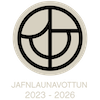Almenn verkefni 2019
Almenn verkefni 2019
Heiti verkefnis : | Decarbonization Scenarios for the Reykjavik’s passenger transport: The combined effects of behavioral changes and technological developments | |
Verkefnastjóri : | ||
Stutt lýsing á verkefninu: | ||
Until now, there is only limited knowledge of current GHG emissions of passenger transportation in the Greater Reykjavik area and particularly of the potential future development pathways. Besides, while the electric vehicle can be seen as a prominent solution to the direct (or tailpipe) GHG emissions, there is a lack of understanding of the indirect (or life-cycle) GHG emissions from electric vehicles and other alternative power options such as as hydrogen over the lifetime of light-duty vehicles. In addition, the combined effects of behavioral changes and technological progress in decarbonizing Reykjavik's passenger transportation have not been fully studied. Thus, in this project, we will first, define several decarbonization scenarios focusing on changes in social mobility trends and rapid technological development. Then, the implications of the scenarios on the demand for fossil fuels, and on both direct and indirect GHG emissions will be assessed using the integrated energy transport UniSyD_IS model. The project offers a unique opportunity to integrate existing datasets and skills of collaborating researchers to provide timely insights into the combined effects of behavioral changes and technological developments to decarbonize Reykjavik's passenger transportation and also to deliver policy recommendations to urban transport planners to design effective policies to facilitate the transition to the targets set by the City of Reykjavik. | ||
Tilgangur og markmið: | ||
The fundamental purpose is to estimate GHG emissions of different transition scenarios focusing on the behavioral changes and technological developments using the Icelandic energy and transportation system model (UniSyD_IS). The primary objectives are to: 1- Design multiple decarbonization scenarios focusing on changes in social mobility trends and rapid technological development | ||

